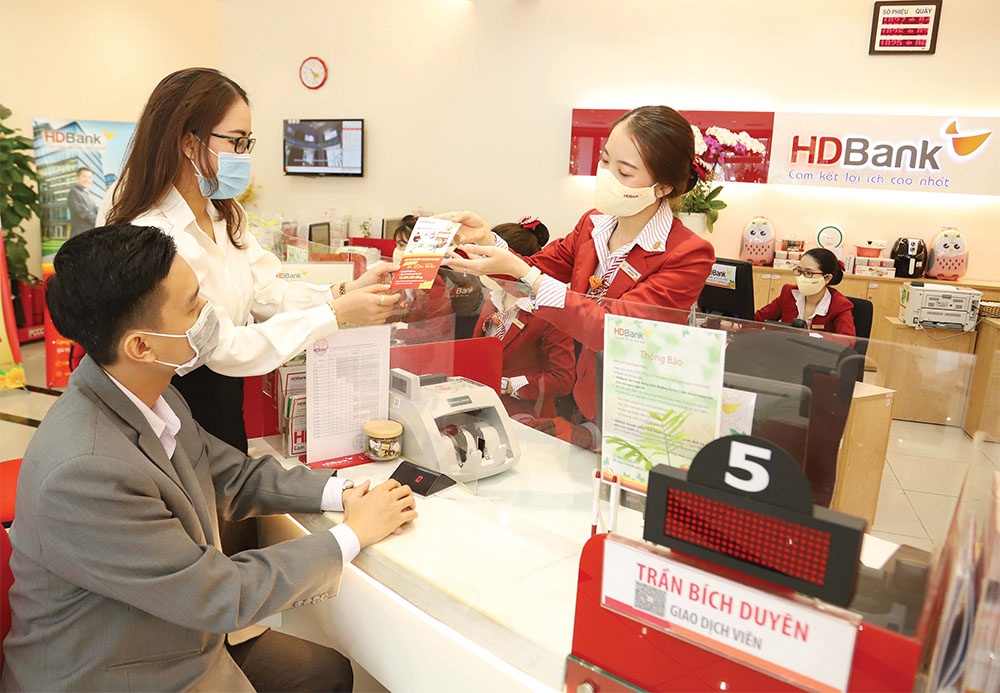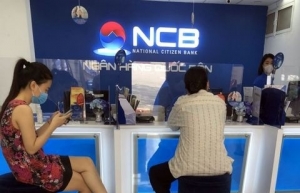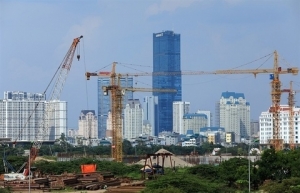Extensions ease credit access for businesses
The State Bank of Vietnam (SBV) last week finally granted the long-awaited credit limit extension for the banking industry. A minimum of 0.7 per cent in extra credit growth allocation has been issued to each individual bank.
Depending on each bank’s ratings and other factors relating to government guidance, extra credit growth has also been granted, with a maximum extension of 4 per cent.
 |
| Lenders like HDBank have been handed credit extensions, issued individually, Le Toan |
The SBV has given 15 commercial banks extra credit space as of September 8.
A representative of VIB verified that the room adjustment rate is 3 per cent. Similarly, the heads of Agribank and VPBank acknowledged a 3.5 and 0.7 per cent modification, respectively.
An SHB executive revealed that the bank’s current adjusted headroom is 3.2 per cent. LienVietPostBank’s adjustment level is less than 1 per cent, whereas TPBank’s is 1.2 per cent.
Vietcombank has indicated that the new rate is around 2.7 per cent, while the adjustment at MB is 3.2 per cent. This is deemed a surprise, as the market predicted that Vietcombank and MB would have the highest adjusted figures. Techcombank and HDBank had a credit extension of 2.7 and 3.4 per cent, respectively.
Sacombank has the highest revised additional percentage of any major bank by far, at around 4 per cent compared to the existing limit of 7 per cent, according to Nguyen Duc Thach Diem, standing vice president and general director of the bank.
Eximbank’s general director Tran Tan Loc said that the bank’s credit room had been expanded from 10 to 11.2 per cent.
“Loans to import-export and household businesses will be Eximbank’s primary emphasis, with terms of 6-12 months. In accordance with the government’s directive, Eximbank has proactively rolled out a 2 per cent interest rate package to support qualifying customers,” he said.
An ACB executive disclosed that the bank’s previously announced 10 per cent loan growth ceiling had been raised by approximately 3 per cent, bringing it closer to 13 per cent. ACB will lend its clients a total of almost VND12 trillion ($521.7 million), according to projections.
“The majority of these funds are being used to support manufacturing and commercial borrowers with working capital loans. The remaining funds will be granted to homebuyers and financially stable clients who wish to purchase real estate as a means of accumulating wealth,” the executive said.
This is the first time in 2022 that the SBV has announced increasing credit limits for financial institutions. Historically, after allocating ceilings to individual units at the start of the year, the operator would relax the restrictions twice throughout the course of the year.
However, by the end of July, most banks had exhausted their credit lines awarded in early 2022, and there is very little room for further lending in the year’s remaining months.
The SBV announced that domestic banks had logged 9.91 per cent year-to-date credit growth by August 26 (equivalent to a 16.2 per cent on-year growth rate), not much different from the 9.43 per cent year-to-date recorded at the end of June.
“Overall, the extension trails market expectations. Based on this new allocation, the 2022 credit growth limit will be around 13 per cent on-year, lower than the threshold of 14 per cent. Therefore, we expect that there might be another extension granted by the end of the year, as the SBV might opt to carefully roll out credit allocation gradually this year,” said Trinh Thai, an analyst at SSI.
“When we compare this against last year’s credit growth, we see that 2022 credit growth in state-owned commercial banks is keeping almost at the same rate, or an even higher rate in the case of Vietcombank, whereas most joint stock commercial banks received a lower 2022 credit quota than the actual 2021 credit growth.”
This appears to signal a cautious approach from the SBV in a bid to discourage credit flows to sectors with a higher degree of risks, such as with real estate or corporate bonds, added Thai. “The move may also be a way to spur more involvement from the banking industry with regards to the interest subsidy programme.”
KB Securities also believes that the stock of the banking industry will be improved due to the recent SBV move.
The SBV also highlighted that commercial banks should accelerate the execution of the 2 per cent interest rate assistance package mandated by the government in May. Accordingly, many firms anticipate the 2 per cent interest rate assistance package to get cheaper capital for their production and business. Due to the bank’s limited credit quota, the number of businesses that have been able to access the package and newly issued loans under the package has been limited.
 | Credit tweak opens door for economic rejuvenation Credit institutions with ample financial buffers, sound risk management, and participation in weak banks’ restructuring journey would gain an upper hand in terms of higher-than-average loan ceilings. |
 | SBV adjusts credit growth targets for banks The State Bank of Vietnam (SBV) has announced adjustments to credit growth targets for banks in 2022. |
 | SBV adjusts credit growth targets for banks The State Bank of Vietnam (SBV) has announced adjustments to credit growth targets for banks in 2022. |
What the stars mean:
★ Poor ★ ★ Promising ★★★ Good ★★★★ Very good ★★★★★ Exceptional
Related Contents
Latest News
More News
- Private capital funds as cornerstone of IFC plans (February 20, 2026 | 14:38)
- Priorities for building credibility and momentum within Vietnamese IFCs (February 20, 2026 | 14:29)
- How Hong Kong can bridge critical financial centre gaps (February 20, 2026 | 14:22)
- All global experiences useful for Vietnam’s international financial hub (February 20, 2026 | 14:16)
- Raised ties reaffirm strategic trust (February 20, 2026 | 14:06)
- Sustained growth can translate into income gains (February 19, 2026 | 18:55)
- The vision to maintain a stable monetary policy (February 19, 2026 | 08:50)
- Banking sector faces data governance hurdles in AI transition (February 19, 2026 | 08:00)
- AI leading to shift in banking roles (February 18, 2026 | 19:54)
- Digital banking enters season of transformation (February 16, 2026 | 09:00)

 Tag:
Tag:




















 Mobile Version
Mobile Version